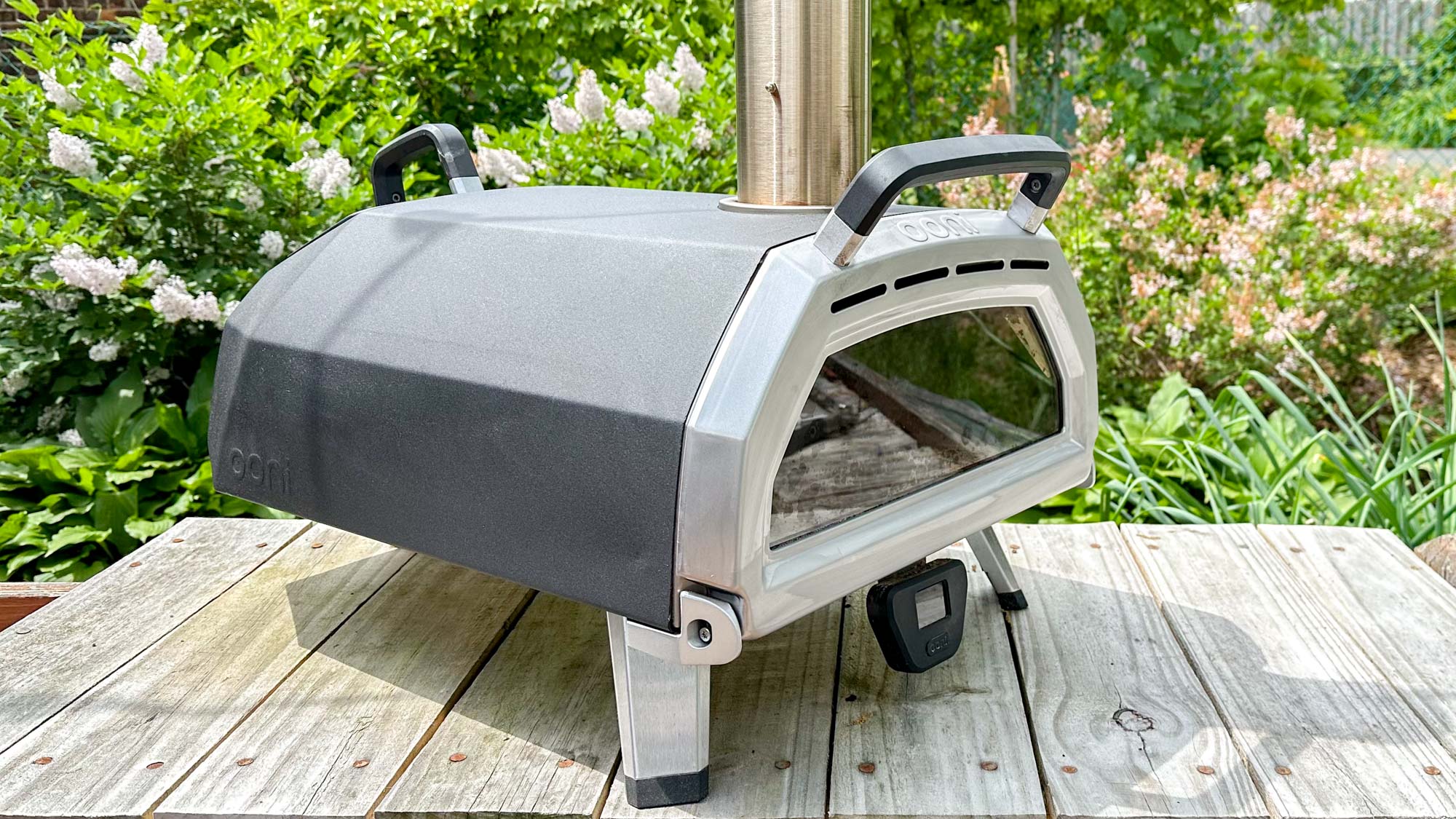
Type: Wood, charcoal, propane, natural gas
Size: 32 x 19.6 x 33 inches
Weight (unboxed): 60 pounds
Cooking Surface: 16.7 x 16.7 inches
Heating Capability: Over 900 degrees Fahrenheit
When your pizza oven is recommended by the Associazione Verace Pizza Napoletana, it has to be good, right? As the city where the world’s most perfect food was invented, Neapolitans are the most particular about what constitutes good pizza and the tools used to make it.
So not surprisingly, I was just as wowed as my Italian brethren when I started baking pies in the Ooni Karu 16. The largest — and most expensive — of Ooni’s outdoor ovens, the $799 Karu 16 can use wood, charcoal, pellets, propane, or natural gas, has a large glass door, a built-in thermometer, and has a taller chamber than the company’s other ovens. If you’re having trouble deciding if this is the model for you, read the rest of my Ooni Karu 16 review to see why it’s at the top of our list of the best pizza ovens.
Ooni Karu 16 review: Price and availability
The Ooni Karu 16 is available at Ooni’s site and other online retailers for $799, and comes with a 5-year warranty. However, this only gets you the wood-burning model. If you want to use it with propane or natural gas, you’ll need to purchase the propane gas burner ($119) or the natural gas burner ($149) separately.
If this is your first pizza oven, I would also recommend you purchase a pizza peel; Ooni sells a few different models starting at $49, though you can find less expensive options on Amazon and elsewhere. And while the Karu 16 has a built-in thermometer, it doesn’t hurt to have a separate infrared thermometer, which will set you back about $40.
The Karu 16 is Ooni’s most expensive wood- or gas-powered oven (the company also makes an electric model for $1,000), so if you’re looking for something cheaper, take a look at our comparison of which Ooni pizza oven is best for you to see if there’s a model that better fits your budget.
Ooni Karu 16 review: Design
The Karu 16 has a similar shape to Ooni’s other pizza ovens: viewed from the top, it’s somewhat rectangular, but tapers towards the back. At the top, towards the front is a tall smokestack, while a hatch at the rear opens to reveal the fire chamber, where you would place wood or charcoal.
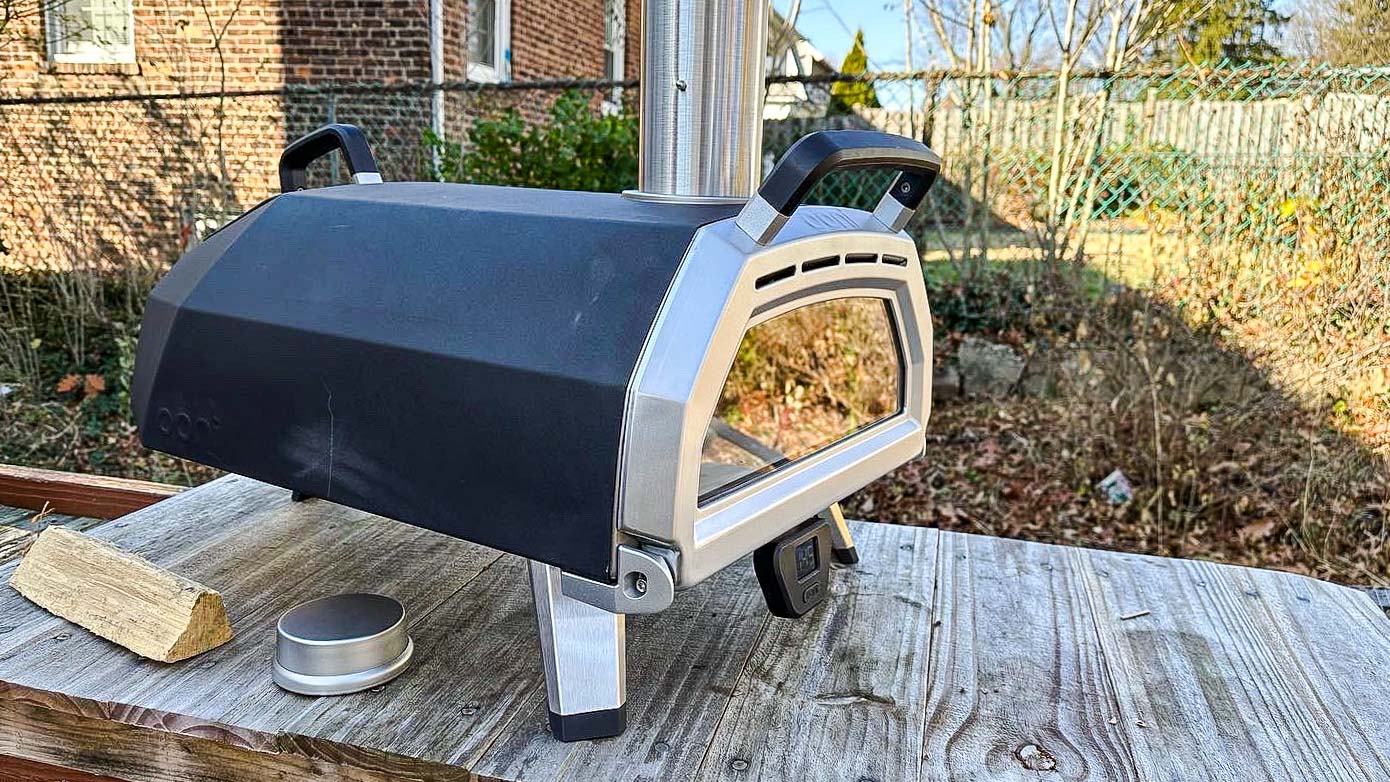
As with Ooni’s other ovens, the Karu 16 sits on three folding legs that prop the oven up about 5 inches high; it’s more than enough room so that you don’t have to worry about the table beneath getting overly hot.
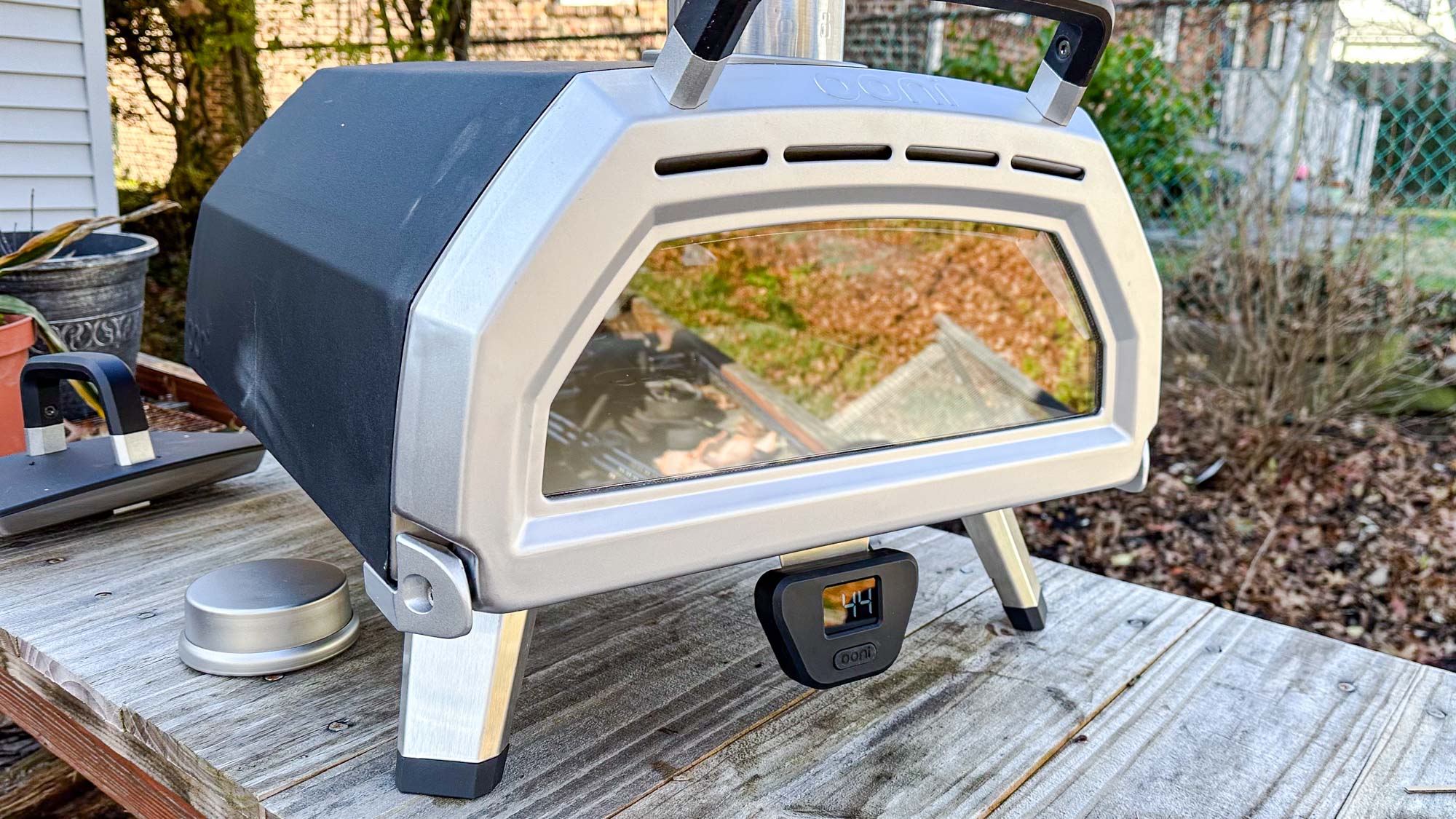
At the front of the Karu 16 is a large glass door that lets you see how your pizza is cooking without having to open the oven and release its heat. It’s a truly handy feature. Just below the door is a small digital thermometer, which takes its readings from just inside the front of the oven. It’s also very useful, but I would recommend picking up a digital thermometer, too.
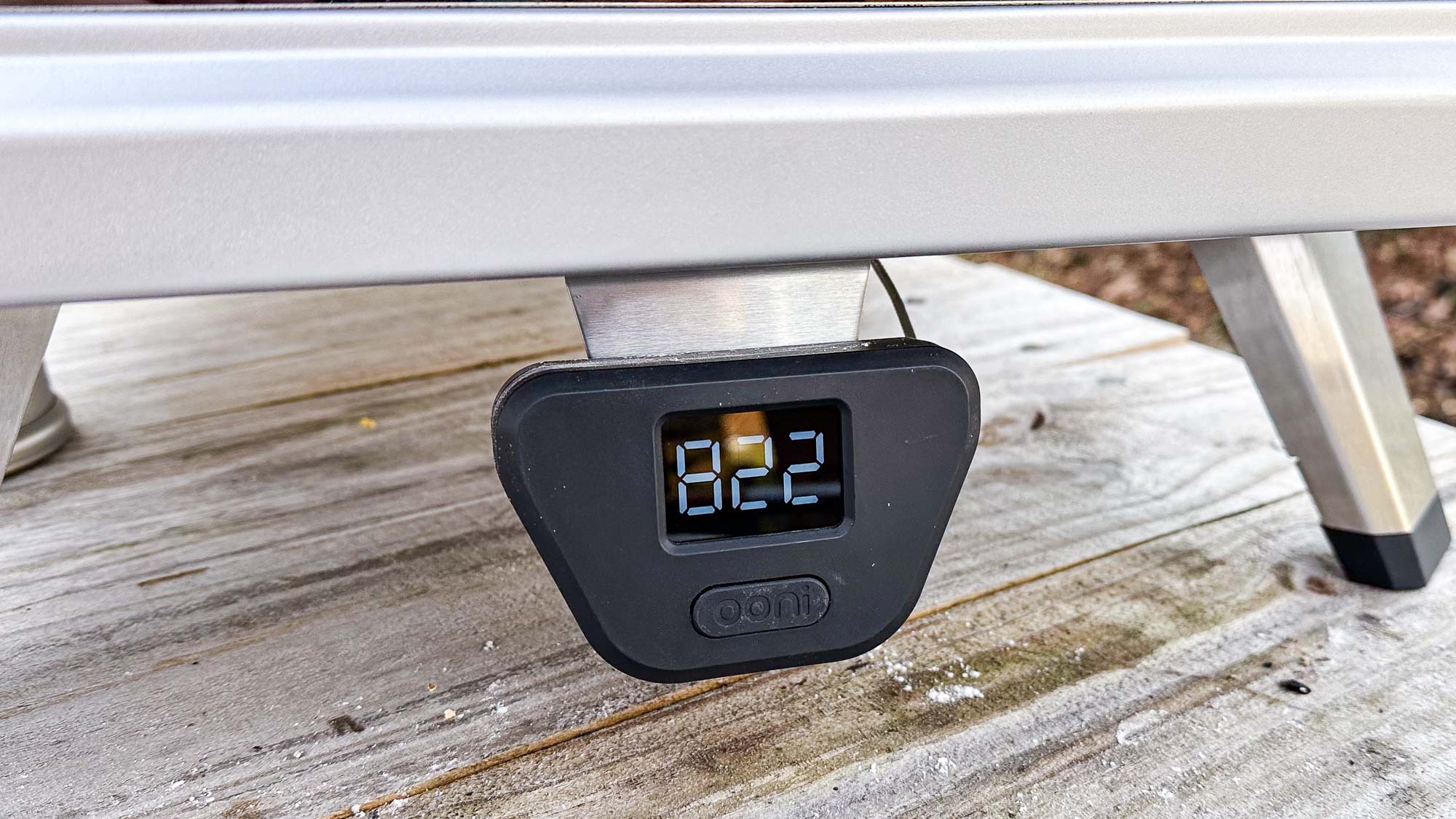
Weighing 60 pounds and measuring about three feet in length, the Karu 16 isn’t nearly as portable as the Ooni Fyra 12, which is about a third of the weight, so I’d be less likely to take this on a camping trip.
Ooni Karu 16 review: Fuel types
One of the biggest advantages of the Karu 16 is that it can accommodate the most fuel types of all of Ooni’s ovens. Its large fire box lets you use wood pellets, but also has enough space to fit charcoal and wood chunks. I used the oven primarily with wood, as there’s something romantic about using the same type of fuel as the original pizzaiolos did back in Naples.
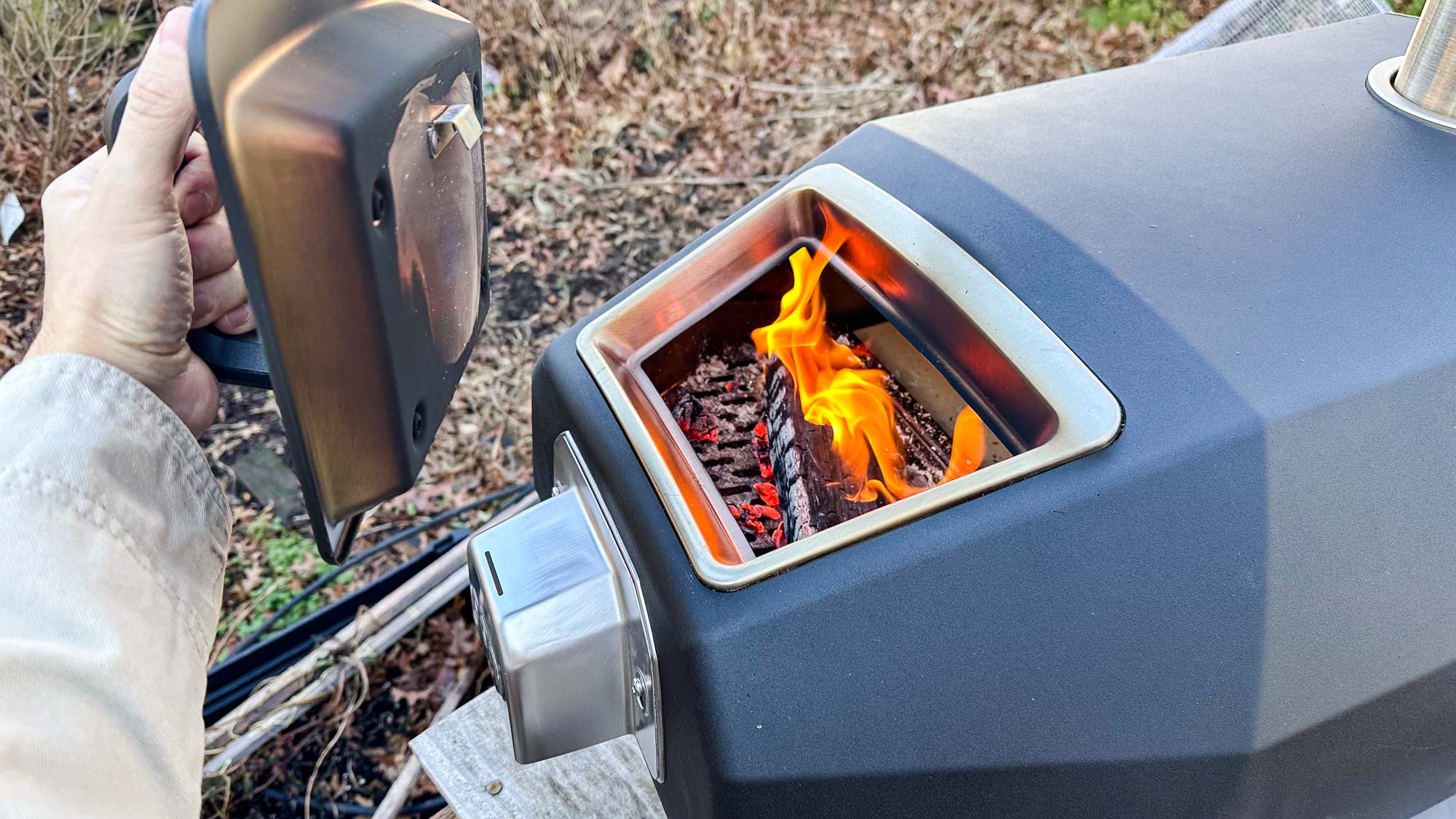
Of course, if you’re looking for convenience — or you’re new to pizza-making and want to simplify things — you can always get the gas attachment.
Ooni Karu 16 review: Performance
The large door on the upper back of the Karu 16 made it easy to load wood into the oven; it was much more convenient than with the Solo Stove Pi, which forces you to move around to the back of the oven to add wood. The larger size of the Karu 16’s fire box also let me add bigger chunks, which burned for a longer time, so I wasn’t always rushing to add more wood in between throwing pies. However, It was more of a pain to clean out the ash from the Karu 16, as you have to pull the entire fire pan through the oven.
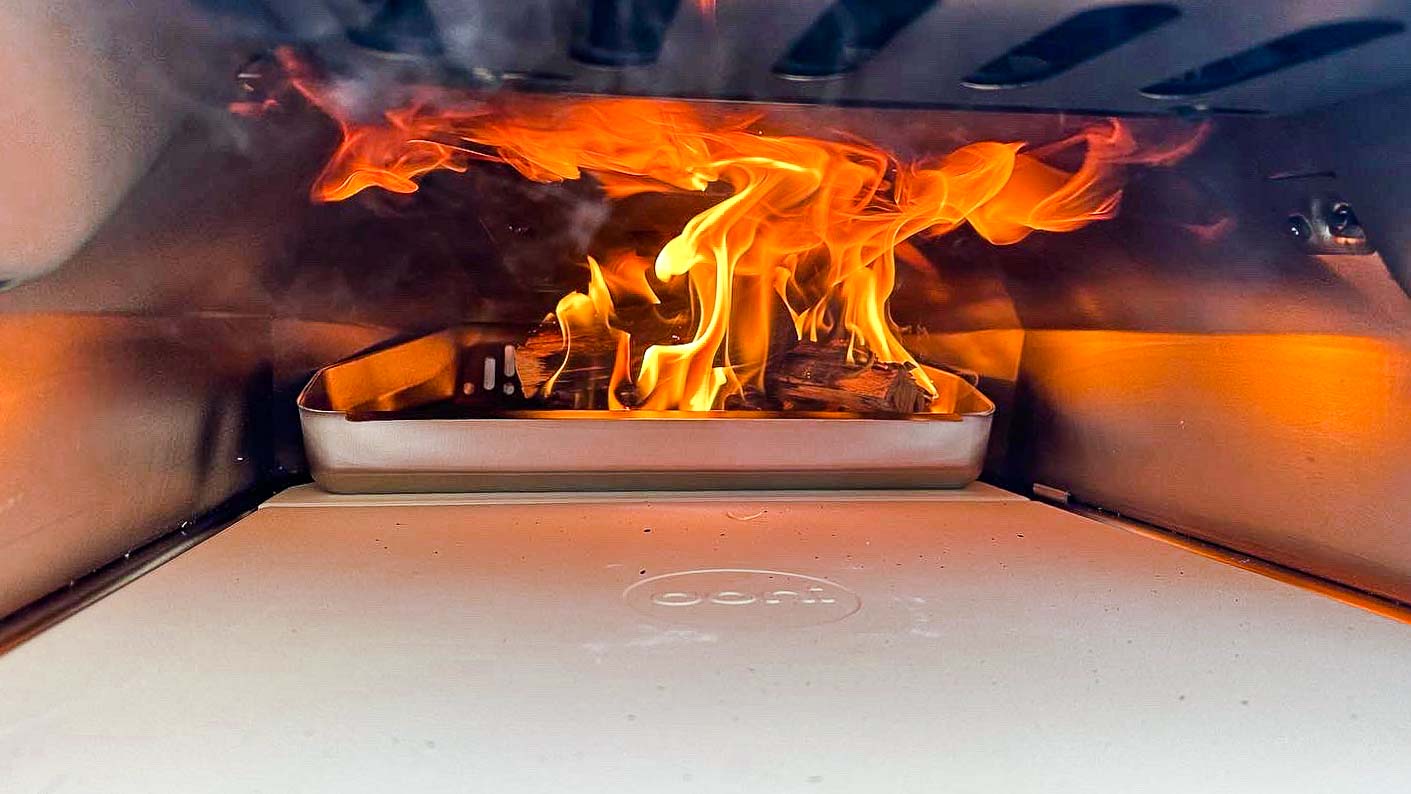
Having a large glass door in the front of the oven is a real game-changer. It let me keep an eye on the pizzas as they cooked while retaining the heat inside the oven. The door was easy to open and close, though at times the locking mechanism — you have to lift the door up slightly before you can swing it open — could be a bit frustrating.
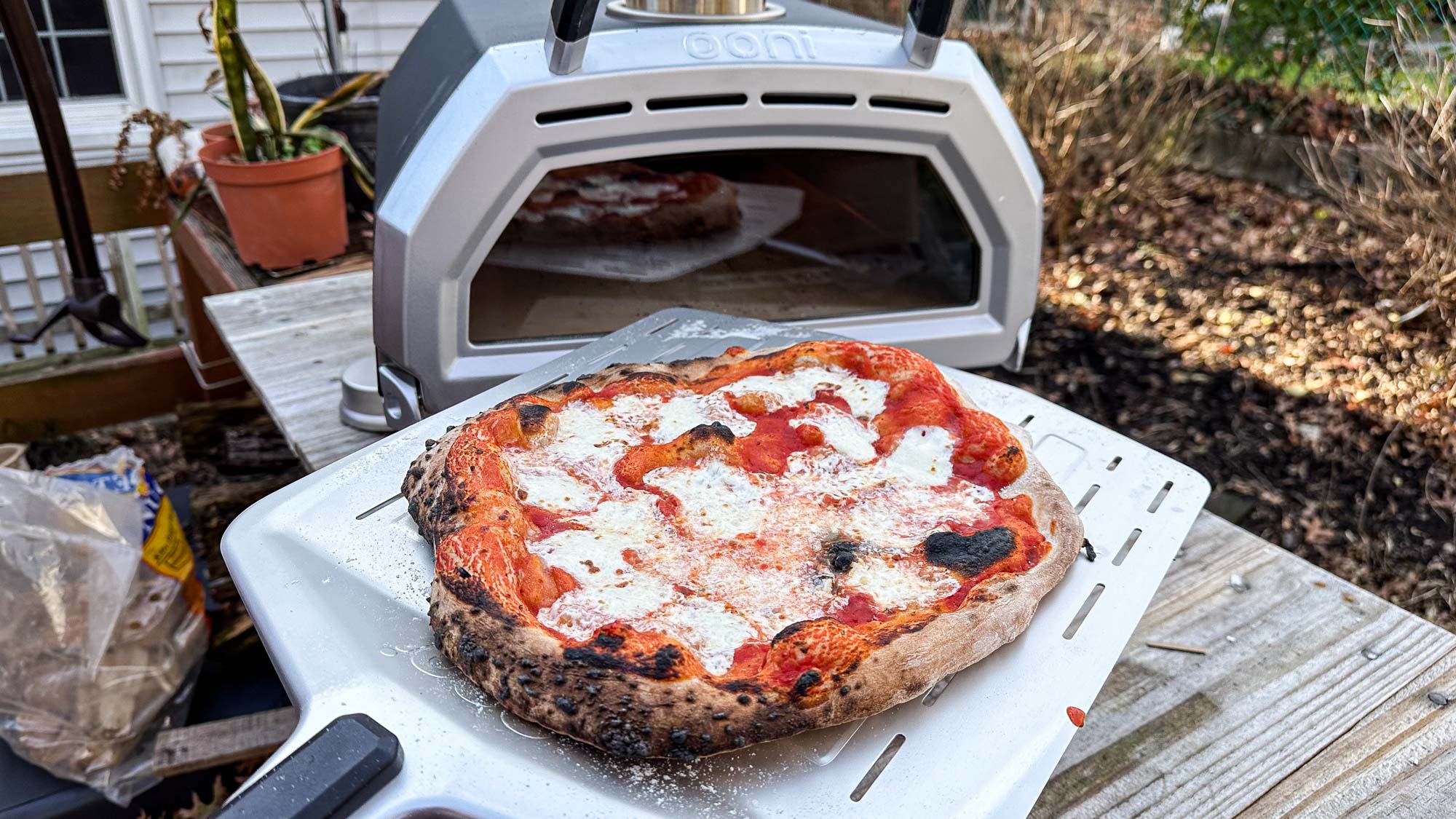
The Karu 16 performed brilliantly, turning out perfectly done pizzas in mere minutes. I also liked the larger 16-inch cooking surface, which allowed me to make bigger pies than in my Fyra 12. And, because the Karu 16 has a taller inside, I was able to cook bigger things in the oven too.
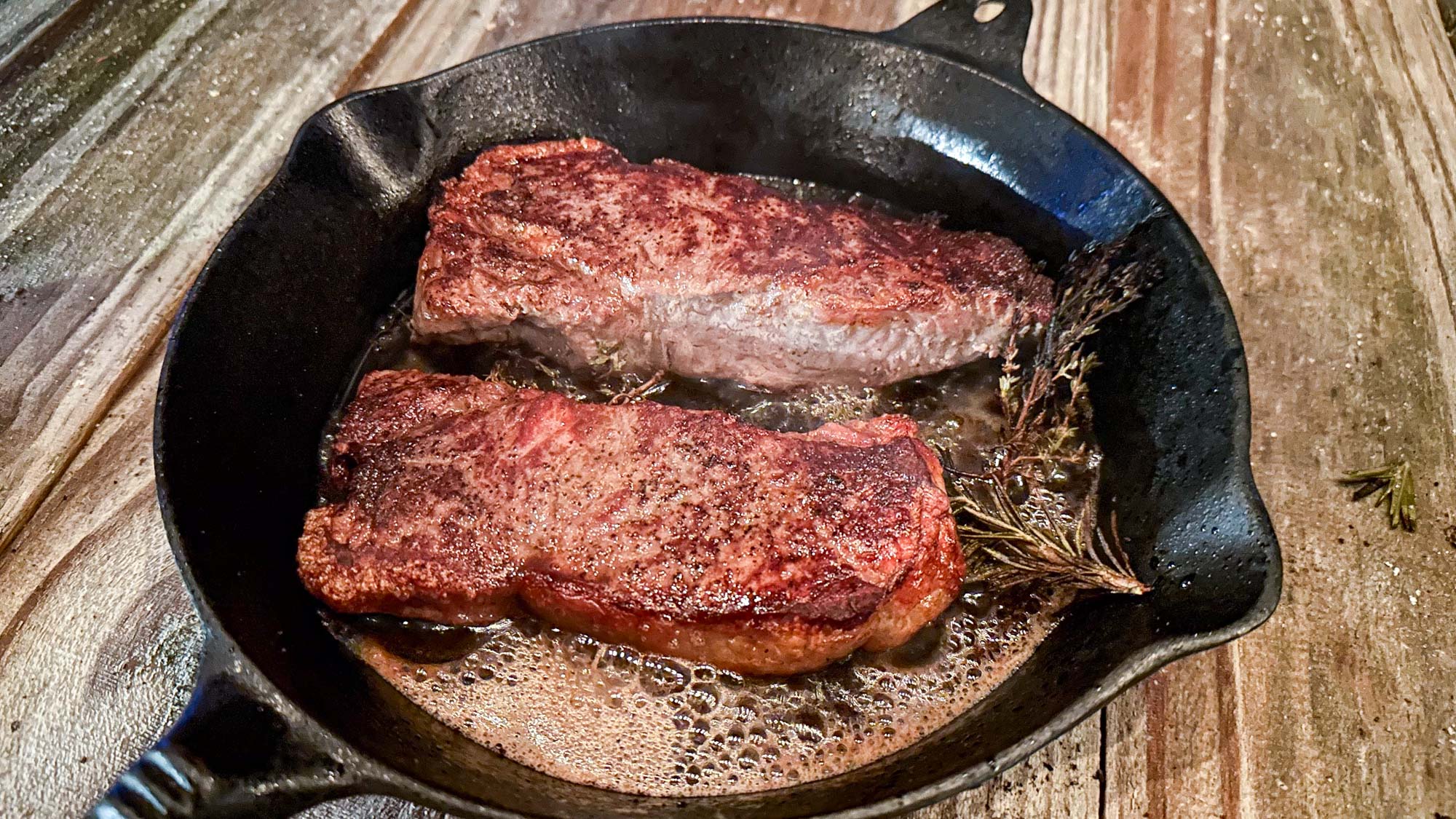
For example, I was able to slide in a cast iron pan and put a real sear on some New York strip steaks. Ironically, I was left wanting an even higher cooking area, as a loaf of bread ended up scraping the ceiling of the Karu 16. For that, you’ll need something like the Alfa Nano, though that model costs $1,399.
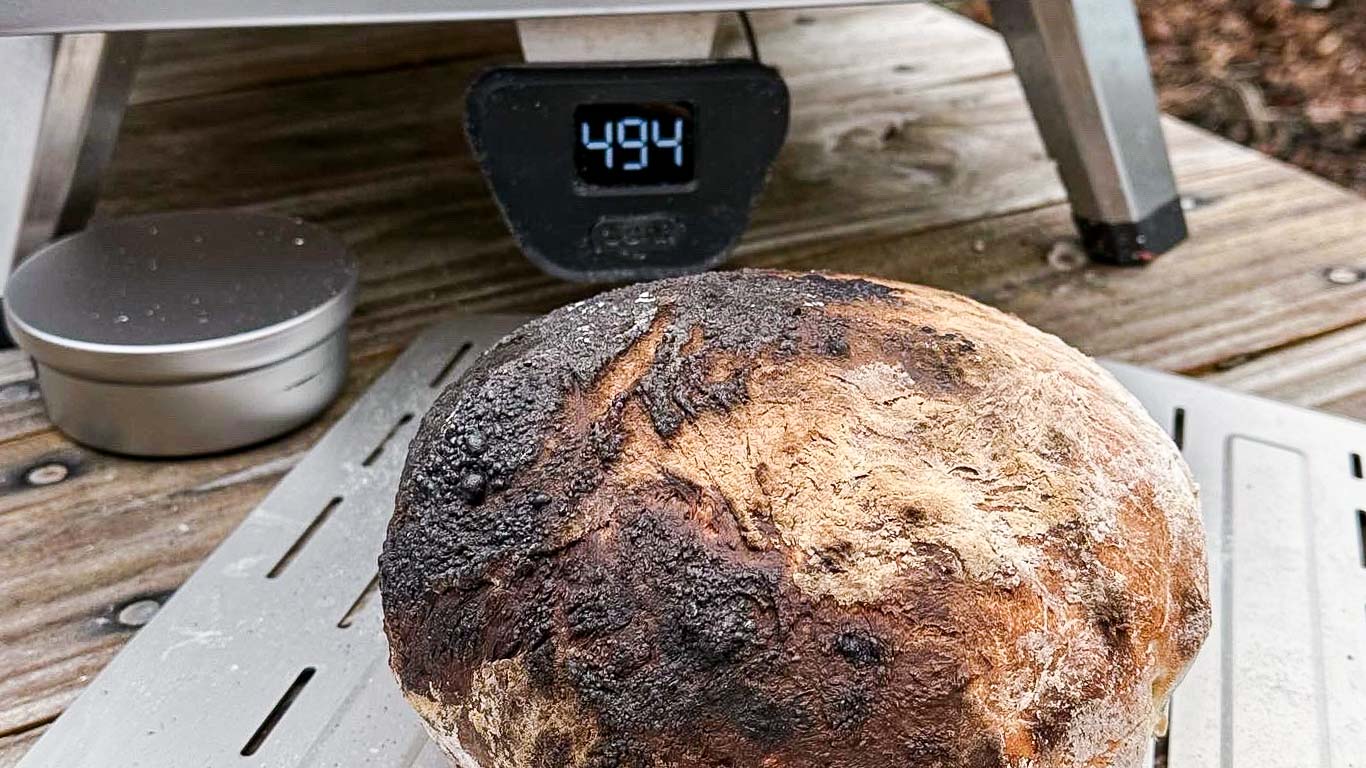
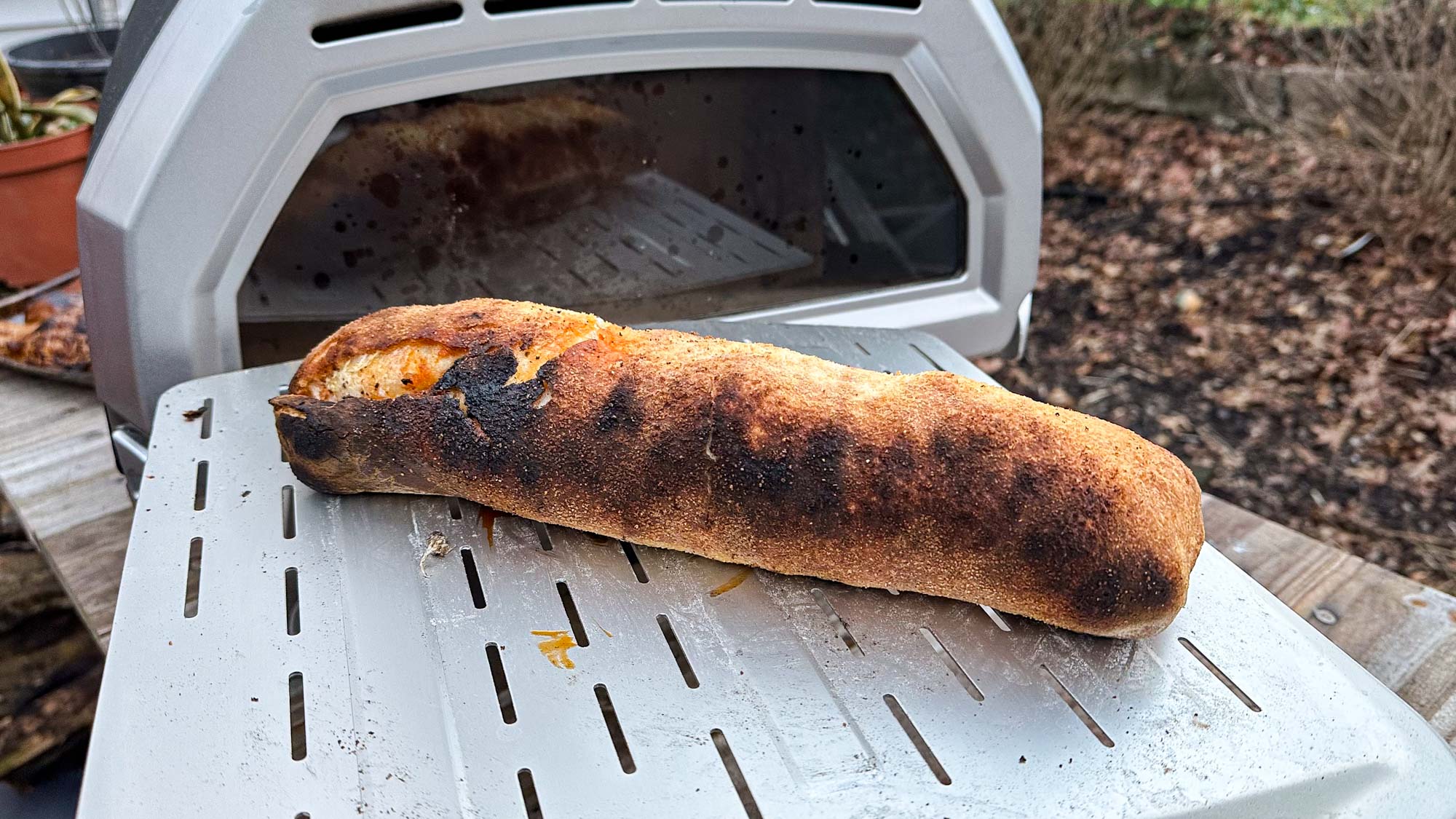
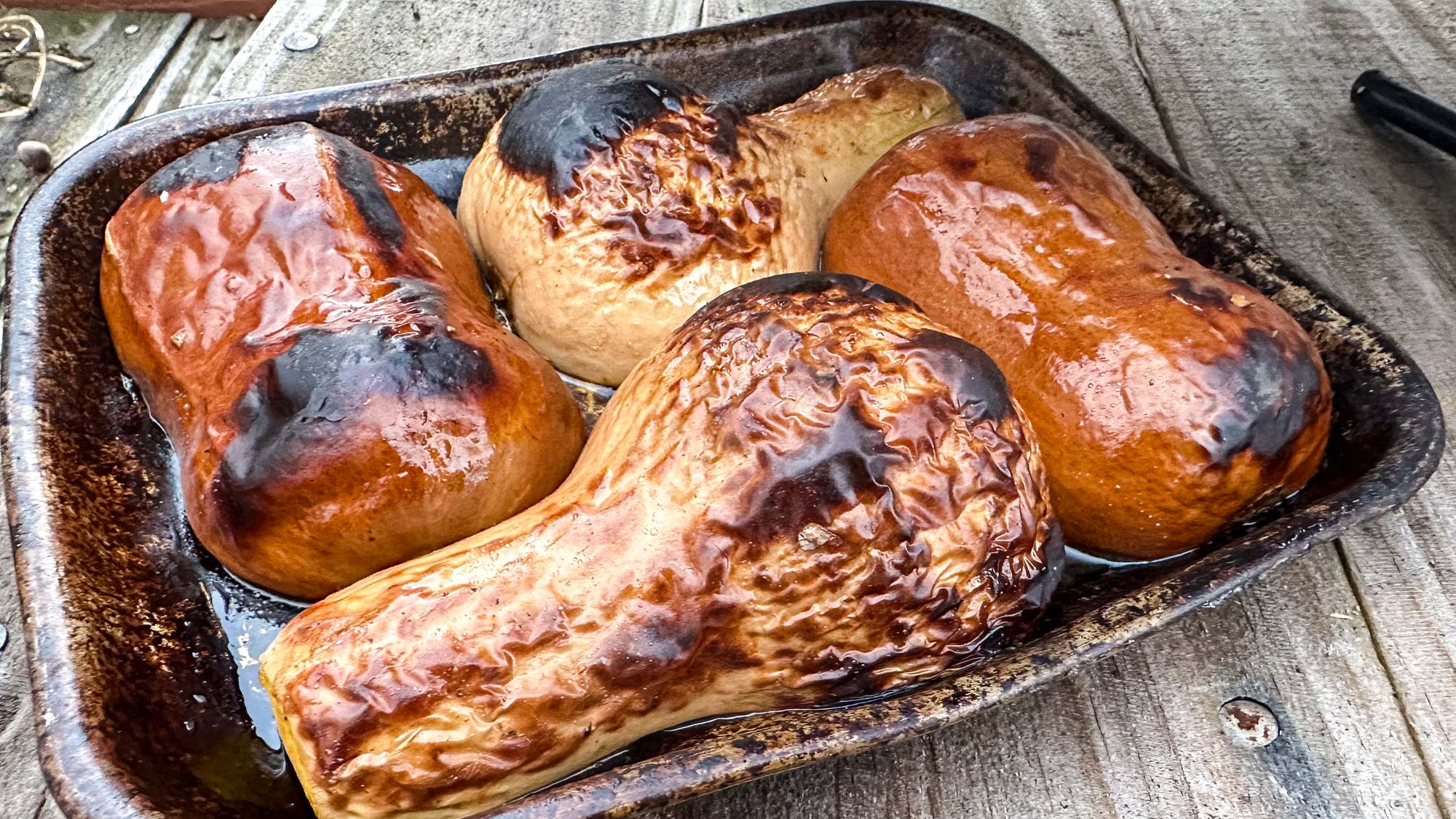
Ooni Karu 16 review: Bottom line
You don’t need Ooni’s most expensive outdoor pizza oven to get delicious results; I’ve made just as good pies in the Fyra 12 as I have in the Karu 16. However, the Karu 16 has a number of bells and whistles that can make your pizza-making experience more enjoyable. For starters, you have a greater number of options when it comes to the fuel source you want to use. If you want to make large pizzas, but don’t want to deal with wood, the $600 propane-only Koda 16 is a less expensive option.
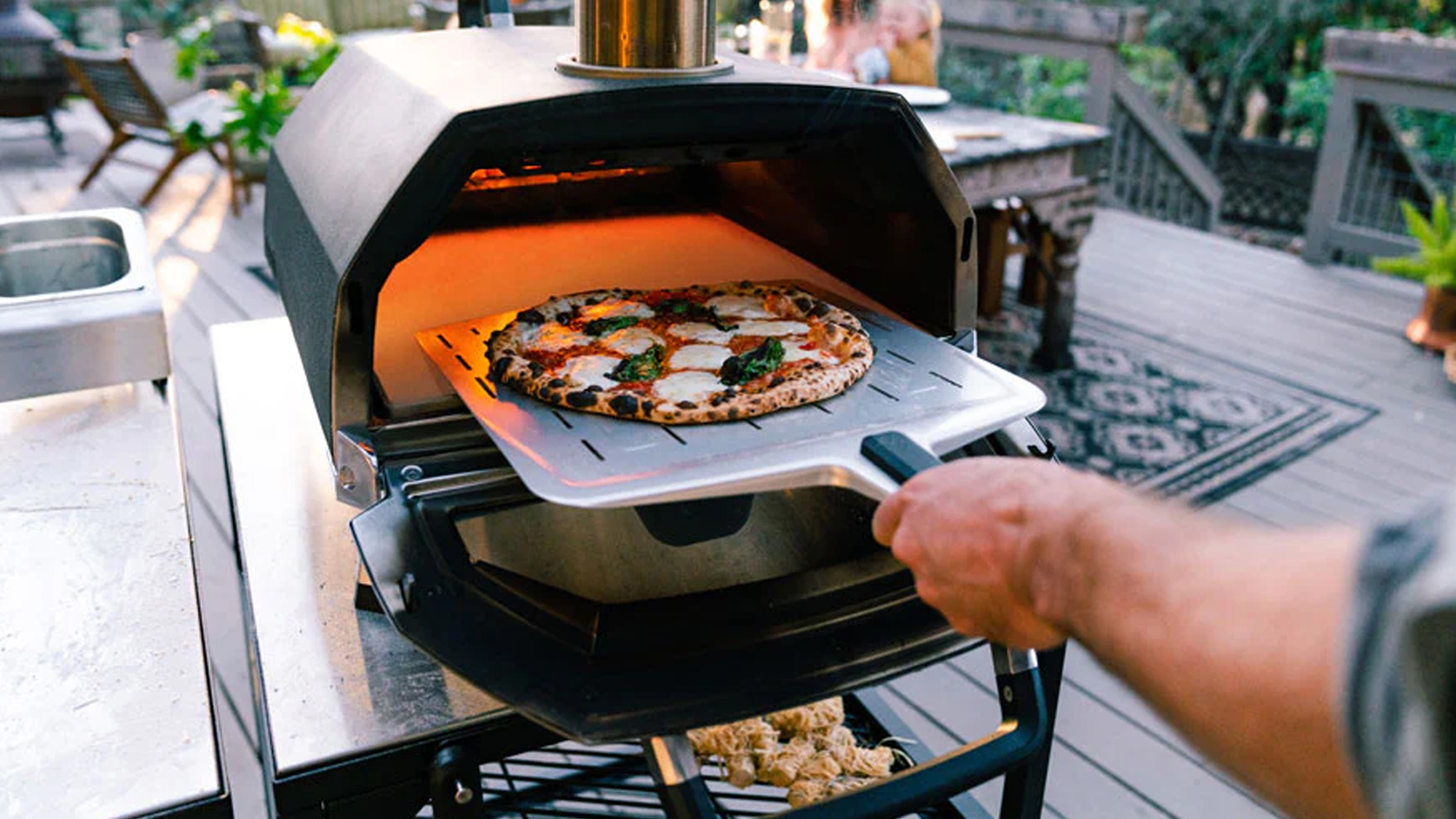
You can also make larger pies in the Karu 16, as well as other types of food that won’t fit in Ooni’s smaller ovens. Then, there’s the niceties of the glass door and the built-in thermometer. While they’re not crucial, they help make everything just a little bit easier. The last thing you want when making pizzas is a lot of fuss. If you can afford it, you’ll love what you can do with the Karu 16.







